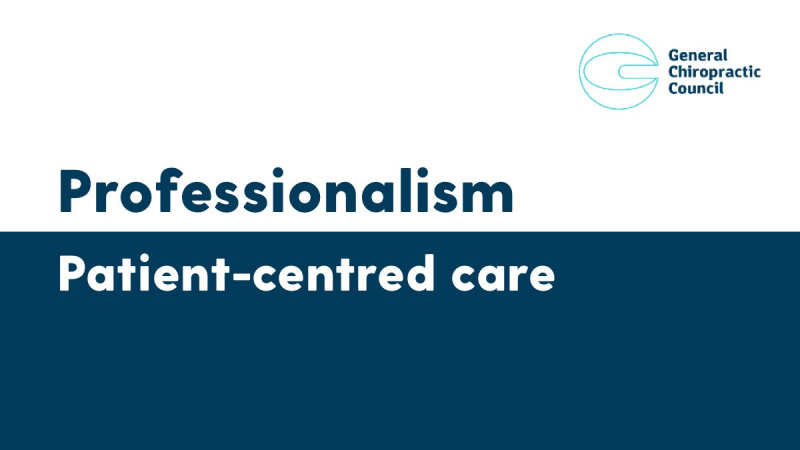What is professionalism?
Professionalism in health and social care is critical to delivering safe and effective patient care. A professional approach towards colleagues and patients helps build confidence, trust, and respect.
Professionalism goes beyond the ability to do your job well. Being professional in the workplace includes demonstrating the right behaviours, attitudes and competencies. We do this by interacting and communicating with others, displaying personal qualities such as honesty, empathy and compassion, and continually striving for personal and professional development.
As well as practitioners, professional bodies, regulators, educators and employers all have a role in supporting professionalism.
As part of a joint project, the GCC and the Health and Care Professions Council (HCPC) have explored key elements of professionalism within health and social care, speaking with professionals across various disciplines, including chiropractic, about their positive experiences of professionalism.
From these personal stories, common themes emerged that highlighted, at its core, professionalism involves:
- Good communication
- Patient-centred approach to care
- Leadership
- Competence
The GCC has also worked with the General Osteopathic Council (GOsC) to explore how collaboration between healthcare professionals can improve patient outcomes and quality of care. A collaborative approach can lead to better coordination of patient care and more effective communication between professionals.
These themes are explored further in the following sections and include some positive examples of professionalism.
Watch our video in which healthcare professionals explain how they define professionalism, what it means to the patients they serve, and their own professional and personal development.

Collaboration
A collaborative approach can lead to better coordination of patient care and more effective communication between health professionals.
Find out More
Communication
Good communication underpins all aspects of professionalism and is critical to building professional relationships with colleagues, patients and other healthcare professionals.
Find out More
Competence
To deliver a high standard of patient care all healthcare professionals must demonstrate a high level of competence in their specific roles.
Find out More
Leadership
Managers and leaders must lead by example, demonstrating a professional approach through their own values, attitude and behaviours.
Find out More
Patient-centred care
Patient-centred care puts the patient at the very centre of their treatment.
Find out More

